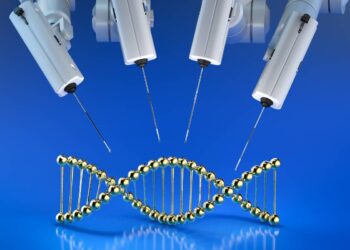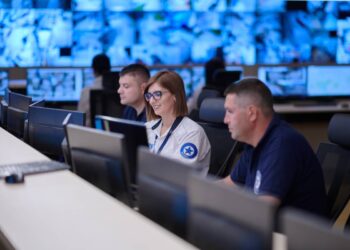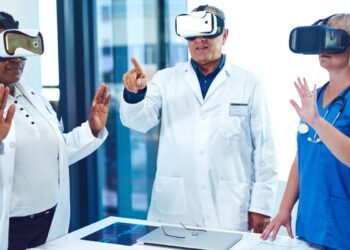Everything is being taken over by AI in Healthcare, medicine included. Medicine The AI is applied for the development of new methods of health care delivery, improvement of patient care, and reinforcement of administrative functions. This paper outlines some of the major breakthroughs and uses of artificial intelligence in medicine, its benefits, its disadvantages, and its future.
Table of Contents
The Rise of AI in Healthcare
AI in healthcare generally refers to a set of software and machine learning algorithms that analyze, predict, and interpret complex medical data. As a whole, the application of AI in medicine has been primarily motivated by the pressing necessity for improving patient’s results, decreasing costs, and increasing the efficiency of health systems. From diagnostic to treatment planning, AI is leaving its footprint in medicine.
Medical imaging is one of the major uses of AI in medicine. The algorithms in AI can process all types of medical images, including X-rays, MRI, and CT scans, with unprecedented accuracy. For instance, an AI system can diagnose early stages of cancers, which the human eye cannot infer yet1. Consequently patient prognosis can be altered for the better with early intervention.
Enhancing Diagnostics and Treatment
Another benefit of AI in healthcare is that it improves diagnostic precision and treatment strategy. Machine learning models are able to sort through the vast amounts of data produced by a patient and find patterns that may indicate the course of a disease. As an example, medical history and lifestyle habits allow AI algorithms to estimate the likelihood of a patient having a chronic illness, i. e. diabetes or heart disease2. On that note, forecasting abilities allow medical professionals to perform preventative care and individualized treatments.
Furthermore, AI is applied in healthcare to personalize medicine. AI will be used to analyze genetic info to figure out what treatment works best for this person. This is very helpful in oncology for instance, the AI can tell a doctor which cancer treatments will work on a patient and which ones won’t, so the treatments become more targeting and much more effective.
Streamlining Administrative Processes
Outside of the clinical realms, AI in healthcare bridges Administrative Processes to alleviate the load on healthcare providers and improve functional productivity. The verdicts are coming in for AI chatbots and virtual assistants, though, and they are still managing quite well with mundane taks such as making appointments, and answering patient questions, and even billing. These will make the health providers save their valuable time for the care of the patient.
That and AI in medicine is used to streamline hospital logistics. Predictive analytics can forecast how many patients will be admitted to a hospital and therefore allow the hospital to manage its resources. For example, AI algorithms will be able to determine when the busiest times in the emergency room will be and therefore the hospitals can plan for that, staff and otherwise. With this come better patient care, and shorter waiting time.
Addressing Ethical and Privacy Concerns
Although there are many benefits of AI in healthcare, a major Ethical and Privacy Concerns is also a reality. A lot of personal medical records, that’s one major thing that AI needs in health care. It has to be accumulated and then proceessed and all of that has to be protected from invasion and unauthorized entry. Health care organizations are going to have to have some really strict data safeguards.
Then there is the moral issue about AI in healthcare. AI algorithms can sometimes be prejudice because they are trained on certain data. Such as if an artificial intelligence system is trained on non-homogenous data, then any conclusions drawn from that system may be biased and will not accurately reflect all patient populations 5. Which will in turn make it necessary to take into account important information when training the AI models and to constantly check them to ensure that they are unbiased and precise.
The Future of AI in Healthcare
The field of AI is so grand in medicine, and with new frontiers in NLP and deep learning, those powers will probably surpass what they are now. This includes unstructured data analysis of clinical notes and research papers so that good information can be obtained from doctors. That might also go towards the development of really intelligent virtual secretaries that could answer intricate medical questions.
No less promising is the application of ai to drug discovery and development. The use of ai algorithms to sift through huge amounts of data, pinpointing which are possible drug candidates and how well they will work could greatly reduce the time line of drug development, making it possible to bring treatments to the market much more quickly and at a lower cost.
AI in healthcare will also do much to overcome global health issues, such as tracking and predicting the spread of contagious diseases through the use of AI-enhanced diagnostic tools. AI algorithms can process all this information from facebook and travel records and what not and make predictions on the outbreak so that public health can make informed strategies.
Seeking more informative articles? Business Vision Magazine is your go-to source.
Conclusion
Well, to close this, AI in healthcare has really changed the medical world with its numerous purposes and advantages in diagnostics, treatment, and administrative fields. Health AI is changing the face of patient care managment, overall operational effeciency, and medical research. Now it is also certainly time to look at the ethics and privacy implications of AI in medicine so that it is used in a socially responsible and just way.
And with technology moving so fast, AI in healthcare is limitless. The entire health care system will be 100 times more efficient and productive, not to mention patient oriented with an AI system. If technology continues to expand as it is, then AI has unlimited possibilities in healthcare. All this AI is really going to streamline the system, make it more efficient and effective, and a more patient centered health care system. Medical AI is the way to go and it is going to change (as it evolves) totally the way we practice medicine (give and receive).







